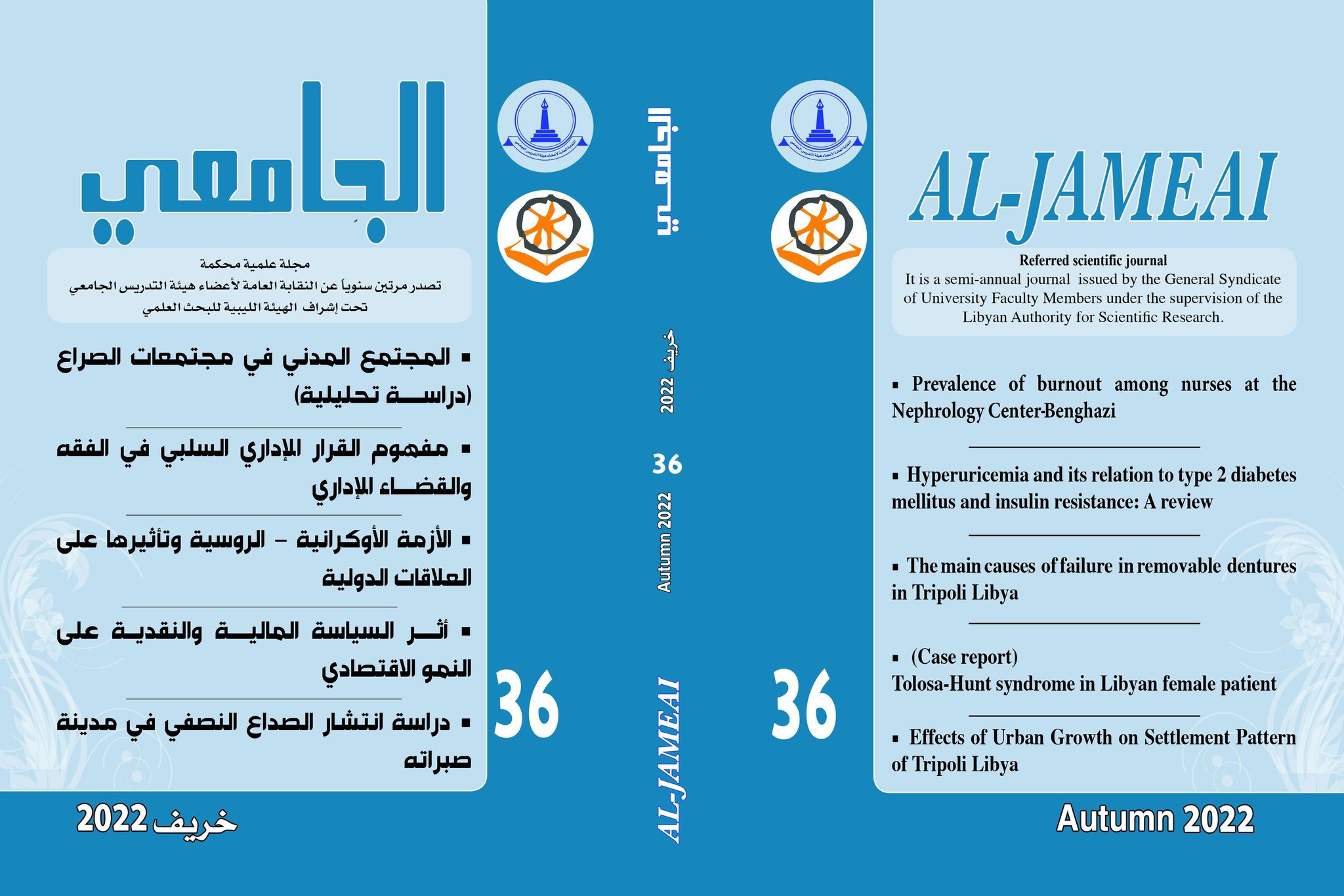عوامل وأبعاد فجوة التوقعات في المراجعة على الشركات العامة وإمكانيات الحد منها
(دراسة ميدانية على الشركات العامة في ليبيا)
Abstract
المستخلص:
تهدف هذه الدراسة إلى إستعراض أبعاد مشكلة فجوة التوقعات في المراجعة بالشركات العامة في ليبيا، والتعرف على مقومات وآليات حوكمتها وتقييم مستوى الأداء المهني للمراجعين الخارجيين ومدى إلتزامهم بمعايير المراجعة، والكيفية التي تفهم بها كافة الأطراف المستفيدة حجم مسؤولية المراجع من خلال تقارير المراجعة. لتحقيق أغراض الدراسة تم توزيع إستبانات على عينة من العاملين بالإدارات المالية ومكاتب المراجعة لعدد من الشركات العامة بمدينة طرابلس بالإضافة إلى عدد من العاملين بديوان المحاسبة ومكاتب المحاسبة والمراجعة المالية. تُبين النتائج أن أداء المراجعين له آثار محدودة في فجوة التوقعات بالمراجعة في الشركات العامة، وبدرجة أقل تأتي آثار حوكمة الشركات وآلياتها، رغم تدني الكفاءة العلمية والتأهيل المهني في المجمل لدي المراجعين الخارجيين وضعف دور مجالس الإدارات بالشركات العامة.
ABSTRACT:
This study aims to review the dimensions of the expectations gap problem in auditing in the public companies in Libya; to identify the components and mechanisms of their governance; to assess the level of professional performance of external auditors and the extent of their commitment to auditing standards; and how beneficiary parties estimate the extent of auditor's responsibility through the audit reports. To achieve the study purposes, questionnaires were distributed to a sample of employees in the financial departments and auditing offices of a number of public companies in the city of Tripoli, in addition to a number of employees of the Audit Bureau and offices of accounting and financial auditing. The results show that the performance of the auditors have limited effects on the gap of expectations of auditing in public companies, and to a lesser extent the effects of corporate governance and its mechanisms, despite the overall low in the scientific competence and professional qualification of the external auditors and the weakness of the role of boards of directors in public companies.
Downloads









